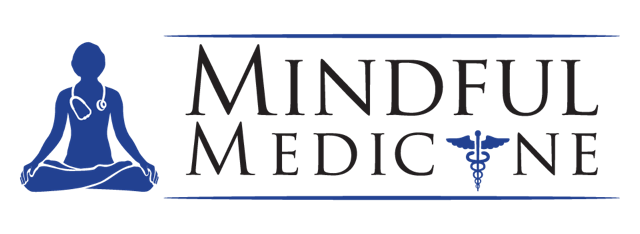A very close friend recently shared an interesting quote:
“Our notions about happiness entrap us. We forget they are just ideas…we fail to see the opportunity for joy is just in front of us when we are caught in a belief that happiness should take a particular form.” Thich Nhat Hanh
This quote has me thinking of how I might be entrapped by my thoughts and ideas. How much of my personal and professional life is swayed by thought patterns. Not actually by reality but by getting “stuck” on an idea of how things “should” unfold. The medical profession is ripe with opportunities for this type of disappointment.
Patients come to their physicians to find relief from unpleasant symptoms in their bodies, to heal an illness, or just to check in to make sure things are on track for good health. We have tremendous responsibilities and power with our assessments, diagnoses, and treatment plans, and this can create a powerful sense of “I-ness” and “my-ness.” “I” can fix this. “My” plan is… The credit is “mine.”
Sometimes doctors get a bad rap for our poor connections with others, due in large part to a perceived focus more on ourselves and our expertise than on the patient sitting in the room with us. Even when we intentionally practice patient-centered care, as humans we tend to have a certain self-referencing attitude which, unchecked, can cause undue suffering. I’m constantly learning how – by mindfully paying attention in the present moment – I can notice when my thoughts create more suffering than necessary. It also helps to have a trusted other to help us see beyond the “I” and “my” lens.
Last night was a perfect time to explore some of these issues. I enjoyed an enlightening dinner with a good friend. It is so important to have time just relaxing and having fun together. I lamented to my friend Donald about the birthday party I had gone to recently where someone I care about deeply had snubbed me. That never feels good. The “snub” set off a cycle of thinking that was not healthy at all. Neuroscientists might have said my “affect network” had been activated, or my cortex was suffering from lack of reward or recognition. Even knowing the brain science, it felt crummy.
Donald curiously asked what emotions had been activated. By the way, Donald knows a thing or two about mindfulness and emotions. He is an author and therapist who travels the country teaching other therapists about mindfulness, and sharing tools to help people be successful in their mental health practices and in their own lives. A well-informed friend with whom to share my pain.
The two primary emotions I felt quite strongly were: irritation and sadness. Irritated and sad that this other person had not treated me as I desired to be treated. My hopes and expectations and connection needs went unmet, and it felt unpleasant.
Donald had a great idea. He suggested I tell the story again and this time not use any of these words: I, me, my and mine. Easy right? No, actually; quite difficult. Just look above and see how many personal pronouns “I” have already used!
The next iteration of the story was without all of the personal pronouns. It was a completely different and fascinating experience to tell “my “ story without all the self-referencing “I-ness.” The events were described as “this person” experienced this or “these eyes” saw this or “this body” felt that. It totally took the personal (and painful) nature out of the story. We both were amazed how different the story was. The two of us laughed whole-heartedly, which felt very therapeutic and completely took the sting out of a perceived snub from the night before. There was more joy, more depth of experience and more recognition of all the other people present at the party.
It turns out that “I” so easily get caught up in a story going on in my mind. We are not our thoughts but just people who experience thoughts. Mindfulness is so helpful because it can take us out of our mind and into our actual experience-rich life. As the bumper sticker says, “Don’t believe everything you think!”
It has been fun to play with this “No I, Me, My, or Mine” game today. Maybe you can try it as well. See if you can find that part of your mind that is producing thoughts that make everything so personal. See if you can create a little separation from those thoughts and make things less personal. It might cast a new light on your experiences.
This comes back to our practice of being physicians and health professionals. What happens when we are with clients that can trigger reactivity in us and make things personal? How does that affect the quality of care we deliver? How does it impact our personal lives?
“I” challenge “you” to play the ”No I, me, my or mine” game. Please let us know what you learn. The lesson for me: It is more fun to be a part of “we” than just stuck in my own mind with a “me.” Life is better when shared with meaningful connections to our friends and dear ones.
P.S. My friend Donald Altman, M.A., LPC has a new book, “The Mindfulness Toolbox”, with many “mindfulness gems” to use in the medical practice.


